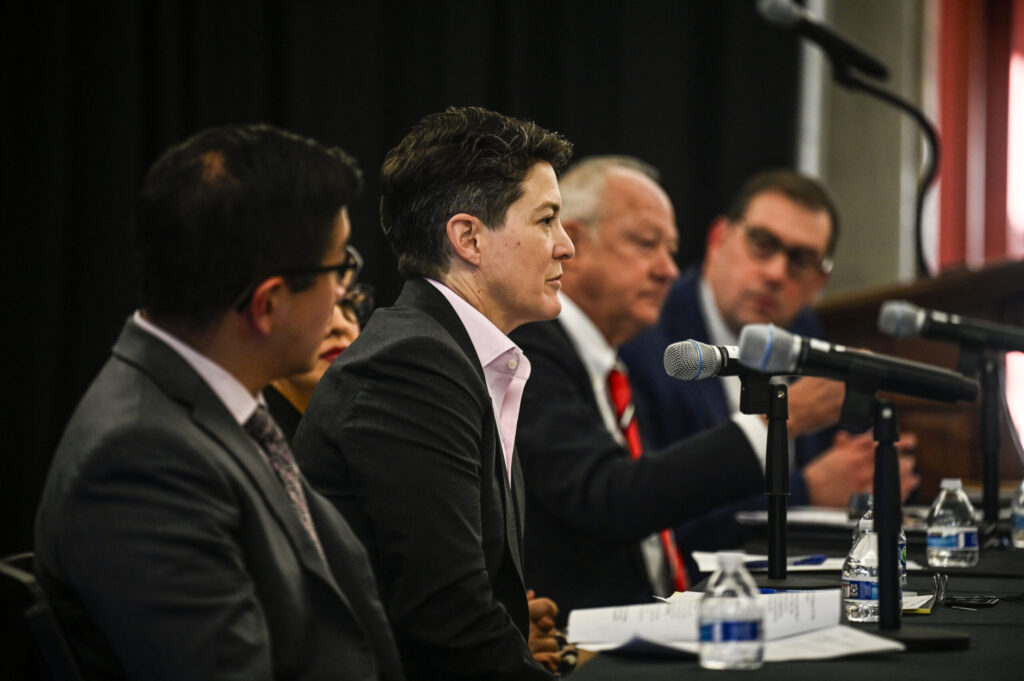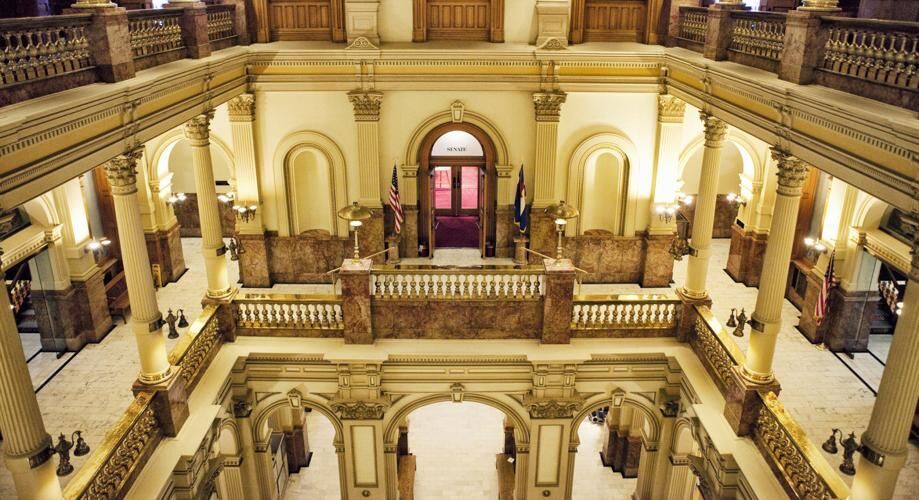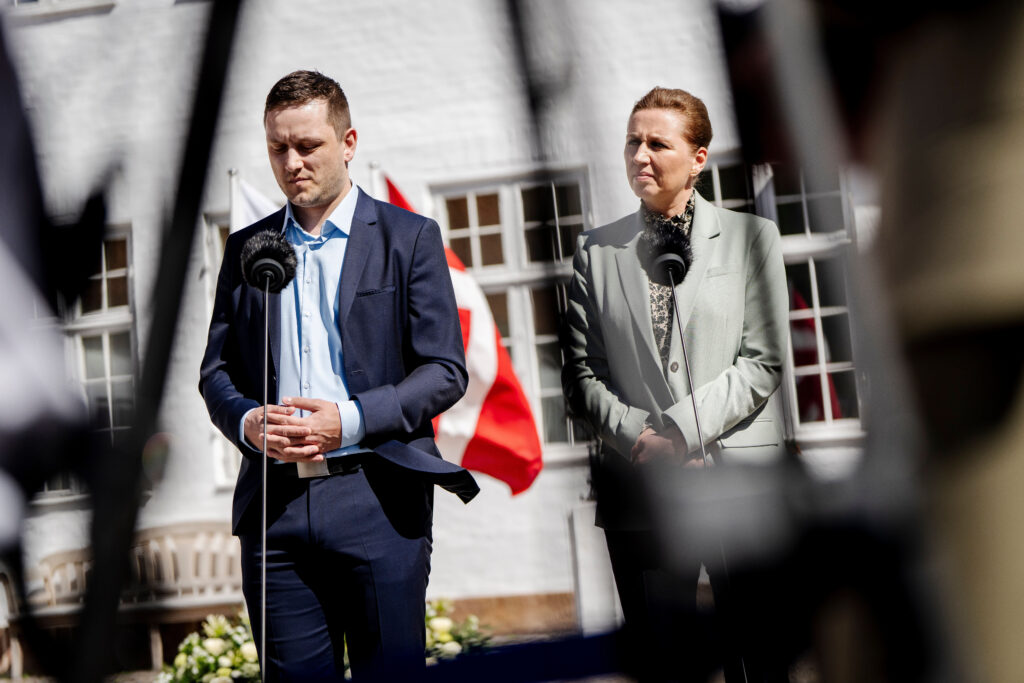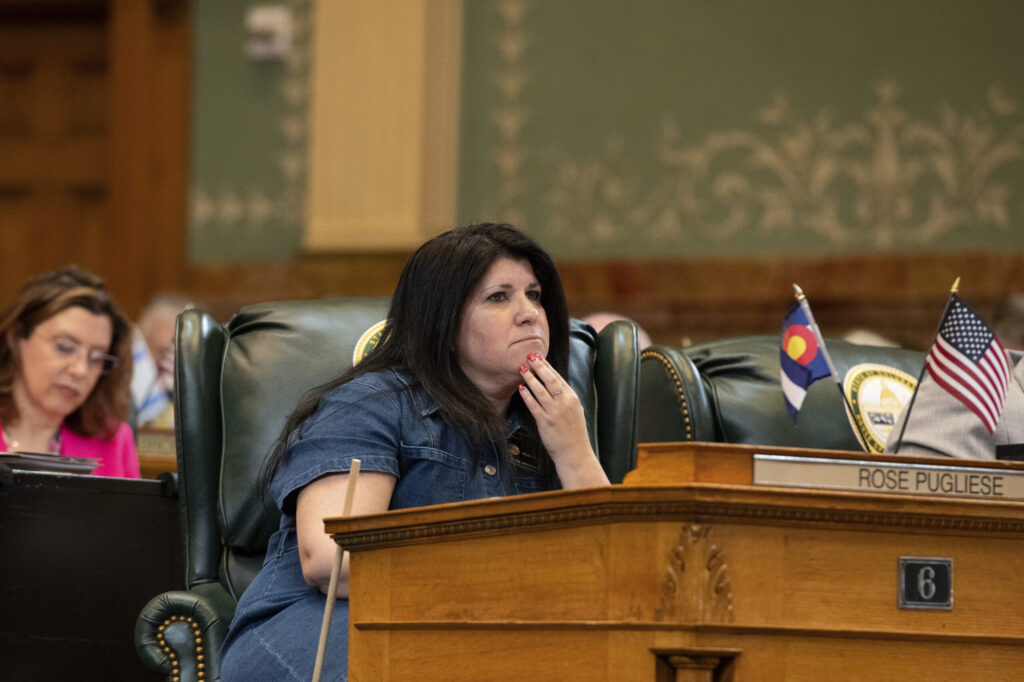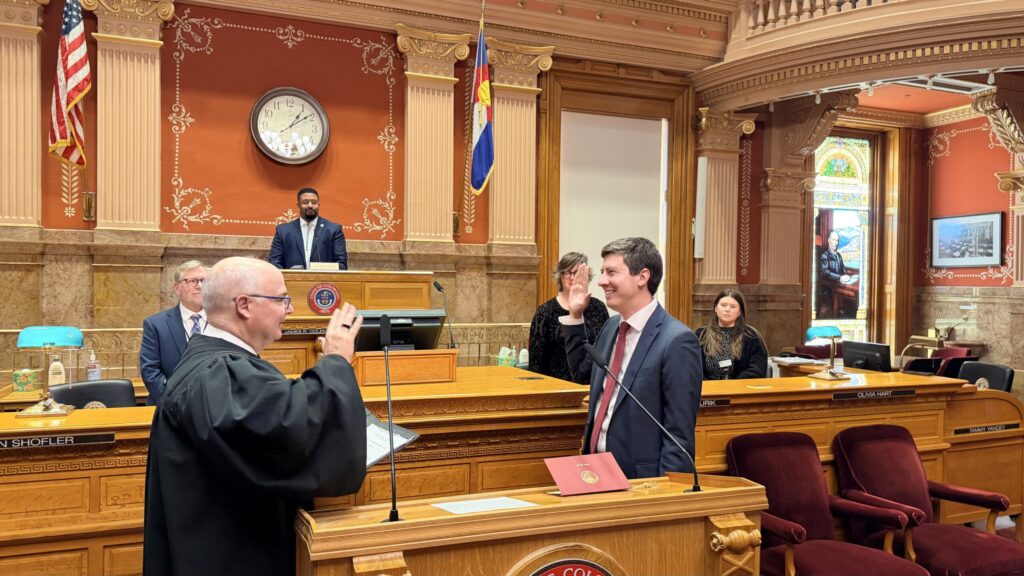Colorado legislative leaders give their take on end of special session
With a two-day special session under their belts and nothing to show for it but failed bills, Senate Republicans tried to sound a conciliatory tone toward Gov. John Hickenlooper.
Senate President Kevin Grantham, R-Canon City, and Senate Majority Leader Chris Holbert, R-Parker, spoke to reporters after the special session adjourned just before 2:30 p.m. Tuesday.
But they also reiterated their irritation over the order from the governor to come back to the Capitol when they claimed there wasn’t an agreed-upon plan on how to fix a taxing problem created by an omnibus bill from the 2017 session.
The problem was created when several special districts, which provide services such as transportation, healthcare and affordable housing, lost their ability to collect marijuana tax revenues. That came from a drafting error in Senate Bill 17-267, which was passed last May and saved hospitals around the state from a half-billion dollar budget cut. The error was in language dealing with marijuana taxes, which were being increased to put $30 million of one-time funding toward rural schools.
The bill eliminated a 2.9 percent state sales tax on recreational marijuana sales and bumped up the special sales tax on marijuana from 10 percent to 15 percent, in order to come up with the $30 million. But the bill failed to recognize that certain special districts, with the metro Denver-area Regional Transportation District the largest, also received a portion of those state sales tax dollars. As of July 1, the special districts started losing that revenue, estimated at $6.9 million for 2017-18.
“We will look at all those options” to fix the problem and will talk to the governor as well as parties both inside and outside the building on possible solutions, Grantham said. “But we’re not willing to sacrifice our constitutional principles to do so.”
Hickenlooper issued called out Republicans.
“It is disappointing that the Republican-controlled Senate refused to fix an error, acknowledged as a mistake by all involved. Coloradans expect us to work together and solve problems,” he said in a statement. “This week, we failed to do so. The special districts will continue to have unintended funding cuts – cuts that will have real implications for Coloradans who rely on buses to get to work, cultural institutions to educate their families, and other services.
“I strongly commend the bill sponsors for all of their efforts. In the end, partisan politics overshadowed the clear intentions of Colorado voters. These tactics only divide us and fuel cynicism. We have been raised to own up to our mistakes and fix them. Most Coloradans believe these values should apply to everyone, especially to government.”
Senate Democratic Leader Lucia Guzman also was disappointed in the lack of any outcome.
“The Colorado General Assembly was not at its best over these past two days, and that is profoundly disappointing,” she said in a statement. “This error is costing counties like Pitkin, Eagle, and San Miguel thousands in transportation dollars, and could result in services like rides for the disabled being cut, or perhaps bus fares being increased.
“It is still my hope that as we prepare to go into the 2018 legislative session, the spirit of bipartisanship and camaraderie we showed during the Senate Bill 267 debate will return, and that we can come back together to work on important issues for the good of all of Colorado.”
Republicans have maintained that the issue is one that should be decided by voters, a requirement they say comes from the Taxpayer’s Bill of Rights (TABOR). Democrats cite court opinions that say the issue can be rectified by the General Assembly without voter approval.
Holbert said the clear solution is to ask the special districts to put the question to the voters in their districts. But it’s a pricey proposition. The Denver-area Scientific and Cultural Facilities District spent one million dollars in 2016 on a campaign to persuade voters to reauthorize their one penny tax on $10 purchase that funds 275 arts and cultural organizations. Holbert acknowledged that such a solution probably couldn’t happen before November, 2018, which could mean up to 18 months of lost revenue. “Is that a good solution for the districts? Probably not from a funding perspective but from a constitutional perspective, it’s perfect.”
Hickenlooper issued an executive order on September 14 to bring lawmakers back to deal with the special district problem. Both Grantham and Holbert said they didn’t know what solution would be proposed before the session started Monday.
Holbert was not shy about expressing his concerns about how the special session came together and the lack of input from lawmakers. “As majority leader, I hadn’t seen a draft bill or what the proposed solution was (before the session started). What were they supposed to be voting on?”
Grantham said he’d met with members of the governor’s staff three weeks ago. He said the staff explained what they wanted to do and when they wanted to do it. “But as far as agreement and consensus, never happened,” he said. “I was open and listening to their suggestions, expressed my concerns (about constitutional issues) but what they took from that meeting is far different from what I did. What they misconstrued is unfortunate and cost taxpayers dollars.”
As to the future working relationship, both said they believe they can continue to collaborate with the governor, and noted they face big ticket items come January, such as transportation and reforms to the Public Employees’ Retirement Association (PERA).
“We’ve proven we can work” with the governor’s office, Grantham said. He also complimented Hickenlooper for offering an olive branch when the governor spoke with senators who advised him the special session was over. “We’re willing to continue our strides forward” on this and other issues for the next session.
Nothing has changed, Holbert said, adding that he values his ability to talk to the governor. He also complimented the governor’s legislative liaison, Kurt Morrison and his budget director, Henry Sobanet. “There are no two finer people in this building,” he said. Grantham called both a credit to the governor.
Grantham also addressed the question of why he sent the two bills to the transportation committee rather than finance, which normally deals with revenue issues. Grantham said transportation was appropriate because the the bills dealt with transportation authorities and dollars, including for RTD and five others on the Western Slope. But “if there is a perception that the votes were there in finance to pass the bill, that’s wrong,” Holbert said.
In a statement issued after the session concluded, House Majority Leader KC Becker, D-Boulder, who sponsored the House bill intended to fix the problem, said Democrats presented “a constitutionally sound measure to fix a mistake that will impact Coloradans across the state. Unfortunately, after we assembled for the special session, the other party chose to waste this opportunity to get this right. It’s very disappointing that they chose partisan politics over Coloradans who have repeatedly asked for these services.”


